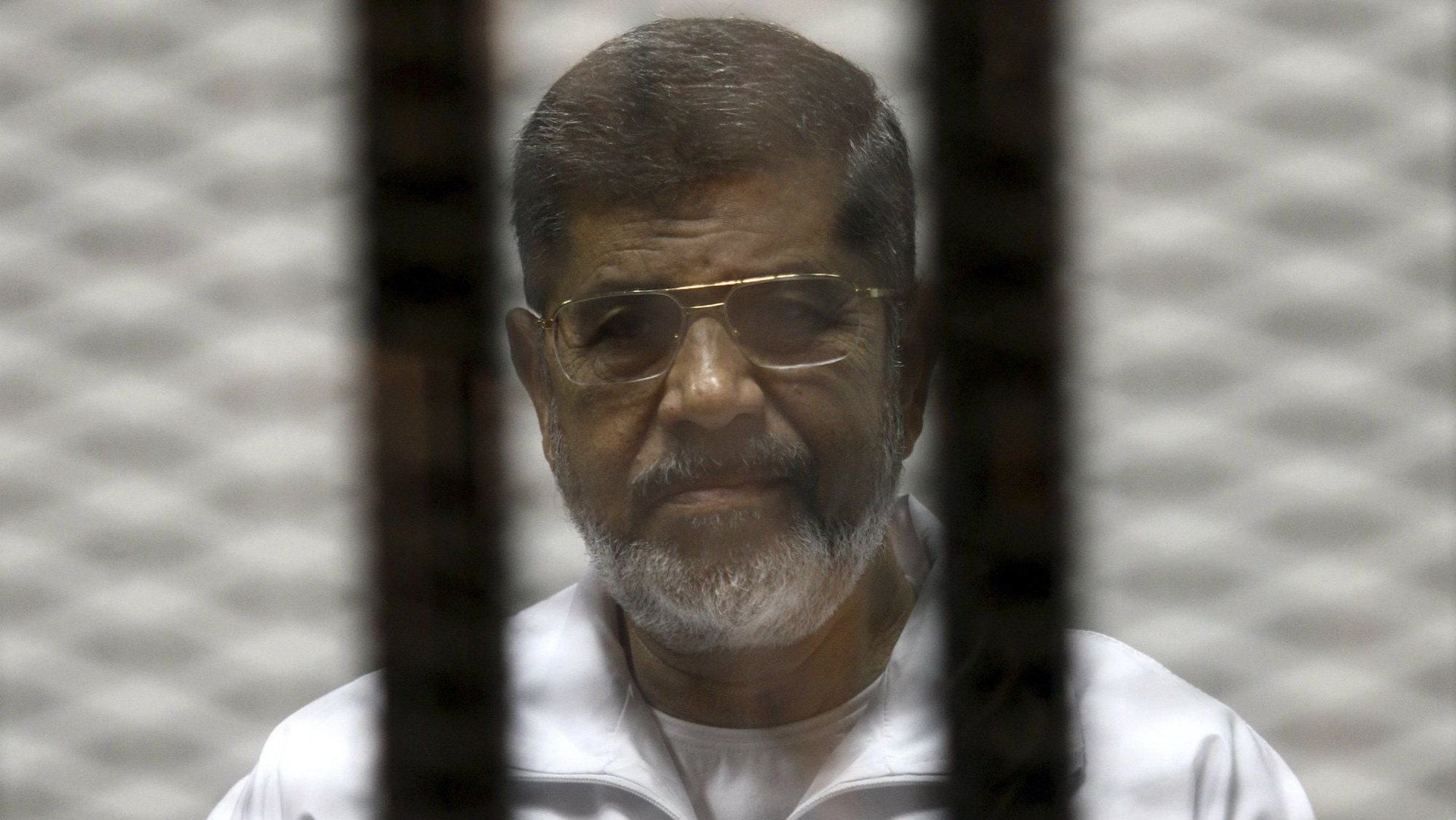Egypt’s former president Mohamed Morsi has been sentenced to death
Egypt’s first freely-elected president, Mohamed Morsi, was sentenced to death in a Cairo courtroom today. The decision will be referred to the Grand Mufti, Egypt’s highest religious authority, for confirmation. A final decision will be announced next month.


Egypt’s first freely-elected president, Mohamed Morsi, was sentenced to death in a Cairo courtroom today. The decision will be referred to the Grand Mufti, Egypt’s highest religious authority, for confirmation. A final decision will be announced next month.
The former president, along with more than 100 others similarly charged today, are facing execution for their roles in a mass prison break of Muslim Brotherhood members in January 2011, during the waning days of Hosni Mubarak’s 30-year rule. Morsi was spared the death penalty on charges of leaking state secrets and conspiring with Hamas, Hezbollah, and Iran in a separate trial earlier this week.
Morsi is already serving a 20-year prison term for inciting violence during protests against his rule in 2012. That trial, the first of many since the military ousted the president in July 2013, a little over a year after his election, was dubbed a “travesty of justice” by Amnesty International.
“The Egyptian criminal justice system appears to be completely incapable of delivering fair trials for members or supporters of the former president’s administration and the Muslim Brotherhood,” the human rights group said earlier this year.
As for Mubarak, a retrial late last year cleared him of all charges related to the deaths of more than 800 protestors who challenged his rule during mass uprisings in early 2011, amid the broader Arab Spring movement across the region. An initial life sentence for the charges was overturned in 2012. Instead, earlier this month the former president was sentenced to three years in prison on corruption charges.
If human rights groups are aghast at how Eygpt has dealt with the Arab Spring and its aftermath, foreign investors seem happier with the regime of Egypt’s current president, former military chief Abdel-Fattah al-Sisi, who has brought a certain authoritarian stability the country.
He rules by decree, as Egypt has lacked a parliament for the past two years; elections were planned for March but postponed indefinitely amid legal infighting. Security concerns are now rising, with bomb attacks regularly striking Sinai and occasionally spreading to Cairo.